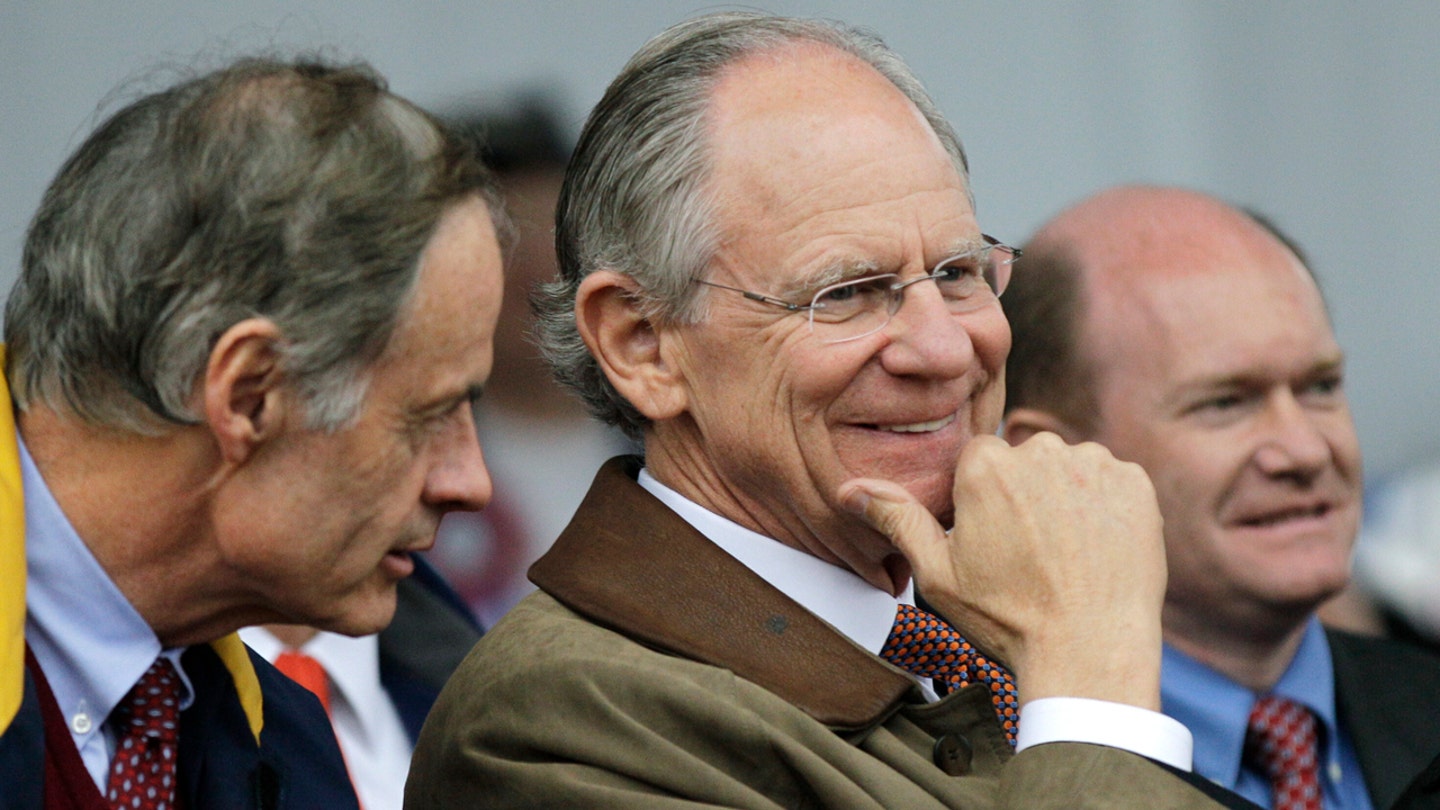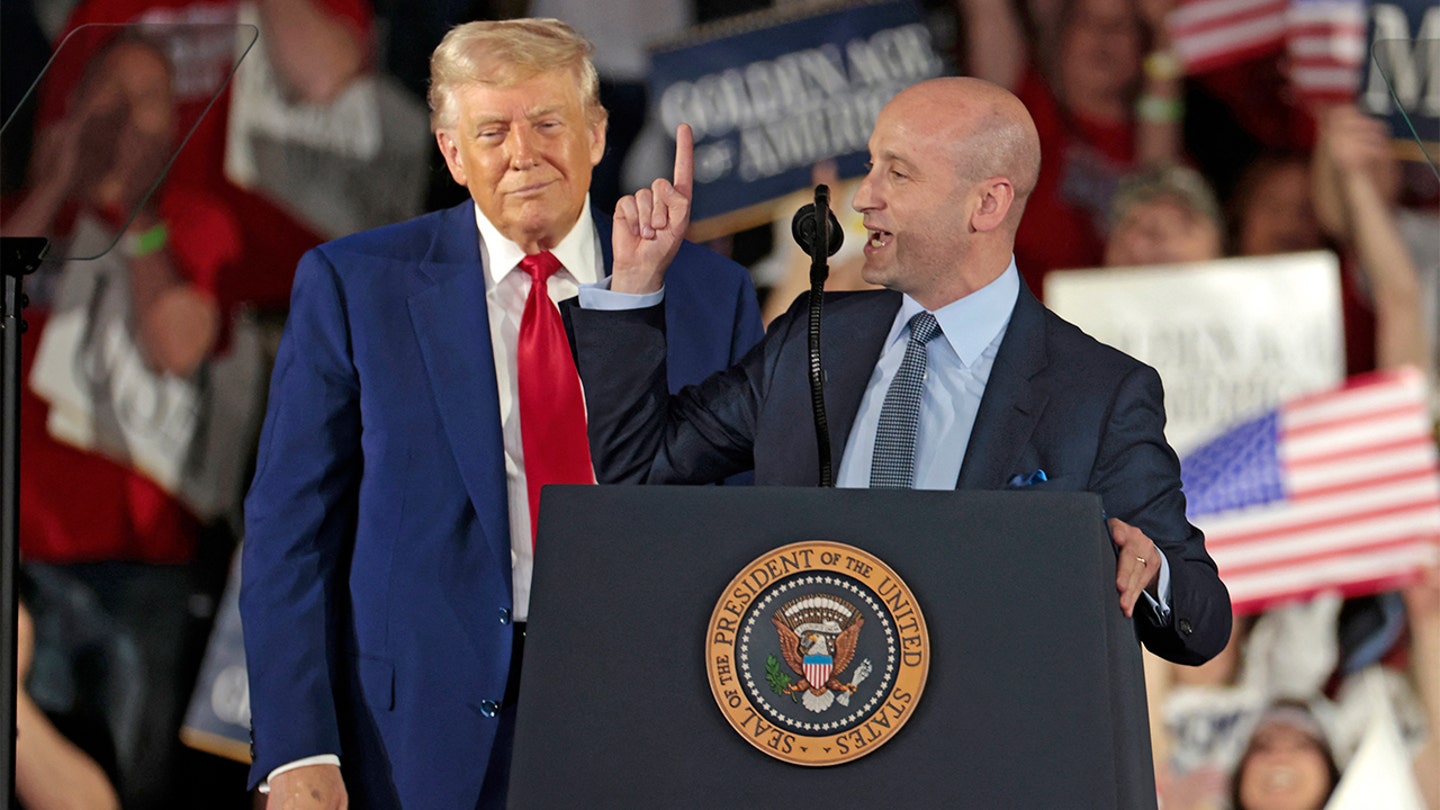
Spanberger and Earle-Sears still at odds over when to debate in Virginia governor’s race
Entities mentioned:
- Winsome Earle-Sears: Ambition, Competitive spirit, Recognition
- Abigail Spanberger: Ambition, Control, Professional pride
- CNN: Recognition, Influence, Professional pride
- Virginia Police Benevolent Association: Influence, Security, Professional pride
- Peyton Vogel: Loyalty, Professional pride, Influence
- Samson Signori: Loyalty, Control, Professional pride
Article Assessment:
Credibility Score: 75/100
Bias Rating: 55/100 (Center)
Sentiment Score: 45/100
Authoritarianism Risk: 25/100 (Generally Democratic)
Bias Analysis:
The article presents both candidates' perspectives relatively evenly, quoting spokespersons from each campaign. While it gives slightly more context for Earle-Sears' position, it maintains a generally balanced approach to reporting the debate situation.
Key metric: Voter Engagement and Participation
As a social scientist, I analyze that this article highlights the strategic maneuvering in the Virginia governor's race, particularly regarding debate participation. The disagreement over debate venues and formats reflects each campaign's attempt to control the narrative and gain a perceived advantage. This conflict could impact voter engagement by potentially limiting direct comparisons between candidates and reducing opportunities for voters to assess them side-by-side. The involvement of CNN, a national network, versus local broadcasters also speaks to tensions between national and local interests in state-level politics. The police association's split endorsements suggest a complex political landscape that doesn't cleanly align with party lines on all issues. Overall, this situation may lead to decreased voter engagement if debates are limited or seen as inaccessible, potentially affecting turnout and informed decision-making in the election.

Capitol Hill prepares for high-stakes battle over Trump crime package, DC police authority
Entities mentioned:
- Donald Trump: Power, Control, Legacy
- Lindsey Graham: Loyalty, Influence, Professional pride
- Pam Bondi: Duty, Professional pride, Loyalty
- Katie Britt: Professional pride, Duty, Influence
- Chuck Schumer: Moral outrage, Opposition, Power
- Dick Durbin: Moral outrage, Opposition, Justice
- Republicans: Loyalty, Power, Control
- Democrats: Opposition, Justice, Freedom
Article Assessment:
Credibility Score: 70/100
Bias Rating: 55/100 (Center)
Sentiment Score: 35/100
Authoritarianism Risk: 65/100 (Authoritarian Tendencies)
Bias Analysis:
The article presents views from both Republican and Democratic sides, but gives slightly more space to Republican perspectives. It includes direct quotes from both parties, maintaining a relatively balanced approach despite the controversial nature of the topic.
Key metric: Crime Rate in Washington D.C.
As a social scientist, I analyze that this article highlights a growing political conflict over control of Washington D.C.'s law enforcement. President Trump's proposed crime package and desire to extend control over D.C. police signify a push for federal intervention in local affairs, framed as a necessary step to reduce crime. This move is supported by Republicans but strongly opposed by Democrats, who view it as an overreach of executive power. The conflict reflects broader tensions between federal and local authority, as well as partisan divides on approaches to crime and governance. The potential use of emergency powers to bypass Congress further escalates the situation, raising concerns about the balance of power and democratic processes. This conflict could significantly impact D.C.'s crime rates and policing practices, depending on which approach prevails.

Mike Castle, Delaware's last Republican governor and congressman, dead at 86
Entities mentioned:
- Mike Castle: Duty, Public service, Legacy
- Delaware Republican Party: Loyalty, Recognition, Unity
- Joe Biden: Ambition, Power, Legacy
- Gene Truono: Respect, Duty, Unity
- Matt Meyer: Duty, Recognition, Unity
Article Assessment:
Credibility Score: 85/100
Bias Rating: 45/100 (Center)
Sentiment Score: 60/100
Authoritarianism Risk: 20/100 (Strongly Democratic)
Bias Analysis:
The article presents a balanced view of Castle's career, highlighting achievements without overt partisan framing. It includes perspectives from both Republican and Democratic sources, maintaining a centrist approach to reporting.
Key metric: Political Polarization Index
As a social scientist, I analyze that this article highlights the career of Mike Castle, a moderate Republican known for bipartisan work and fiscal conservatism. His approach to politics, characterized by centrism and willingness to work across party lines, stands in contrast to the increasing polarization in American politics. Castle's legacy, particularly his work on commemorative coin programs and education reform, demonstrates how politicians can achieve lasting impact through collaborative efforts. The article's focus on Castle's moderate stance and successful career until his 2010 primary loss may indicate a shift in the political landscape towards more partisan positions, potentially impacting the Political Polarization Index by reminding readers of a less divisive political era.

Sean Hannity: Democrats have picked the wrong side of an issue once again
Entities mentioned:
- Sean Hannity: Righteousness, Influence, Moral outrage
- Democrats: Moral outrage, Loyalty, Justice
- Trump administration: Control, Security, Law and order
- Protesters: Justice, Moral outrage, Indignation
Article Assessment:
Credibility Score: 35/100
Bias Rating: 75/100 (Lean Right)
Sentiment Score: 30/100
Authoritarianism Risk: 55/100 (Mixed/Neutral)
Bias Analysis:
The article leans strongly right, evidenced by its pro-Trump administration stance and criticism of Democrats and protesters. The language used, such as 'wrong side' and 'detached from reality', indicates a clear conservative bias in framing the issue.
Key metric: Political Polarization Index
As a social scientist, I analyze that this article likely contributes to increased political polarization in the United States. Hannity's characterization of protesters as 'detached from reality' and framing Democrats as being on the 'wrong side' of an issue promotes an us-vs-them mentality. This type of rhetoric can deepen existing political divides and make bipartisan cooperation more difficult. The focus on crime and protests also touches on sensitive issues that tend to elicit strong emotional responses from both sides of the political spectrum, potentially further entrenching existing beliefs and increasing animosity between political factions.

Christian Faith An Important Part Of Who Senator Pretends To Be
Entities mentioned:
- Senator Josh Hawley: Ambition, Power, Control
- Christian constituents: Loyalty, Righteousness, Unity
Article Assessment:
Credibility Score: 30/100
Bias Rating: 25/100 (Lean Left)
Sentiment Score: 25/100
Authoritarianism Risk: 45/100 (Mixed/Neutral)
Bias Analysis:
The article leans left, using satire to criticize a Republican senator's perceived insincerity. The language and framing are overtly negative towards the subject, suggesting a clear political bias against conservative Christian politicians.
Key metric: Political Polarization Index
As a social scientist, I analyze that this article portrays Senator Josh Hawley as using Christian faith as a tool for political gain, potentially increasing political polarization. The satirical tone suggests a disconnect between professed religious values and actual motivations of political figures, which could lead to increased cynicism among voters and further division between religious and secular segments of society. This portrayal may contribute to eroding trust in political institutions and religious sincerity in public office, potentially exacerbating existing tensions in the American political landscape.

Congress Passes Blank Bill For Trump To Write Whatever Law He Wants
Entities mentioned:
- Congress: Power, Loyalty, Obligation
- President Donald Trump: Power, Control, Ambition
- House Speaker Mike Johnson: Loyalty, Power, Influence
- Americans: Security, Unity, Control
Article Assessment:
Credibility Score: 20/100
Bias Rating: 30/100 (Lean Left)
Sentiment Score: 20/100
Authoritarianism Risk: 95/100 (Totalitarian Risk)
Bias Analysis:
The article leans left, critiquing perceived right-wing tendencies towards authoritarianism. It uses satire to exaggerate and mock the idea of giving a Republican president unlimited power, indicating a liberal perspective.
Key metric: Checks and Balances Index
As a social scientist, I analyze that this satirical article highlights extreme concerns about the erosion of checks and balances in the U.S. government. The fictional scenario of Congress passing a blank bill for the president to write any law undermines fundamental democratic principles and separation of powers. This exaggerated portrayal reflects anxieties about executive overreach and legislative abdication of responsibility. The impact on the Checks and Balances Index would be catastrophic, effectively reducing it to zero, as it depicts a complete surrender of congressional authority to the executive branch. This scenario, while satirical, serves as a stark warning about the potential consequences of unchecked executive power and the importance of maintaining strong democratic institutions.

Social Security is 90 years old. We are making it smarter, better, faster under Trump
Entities mentioned:
- Donald Trump: Loyalty, Power, Legacy
- Social Security Administration: Efficiency, Duty, Professional pride
- Commissioner: Ambition, Determination, Recognition
Article Assessment:
Credibility Score: 55/100
Bias Rating: 75/100 (Lean Right)
Sentiment Score: 85/100
Authoritarianism Risk: 35/100 (Generally Democratic)
Bias Analysis:
The article leans right, consistently praising Trump administration efforts without presenting alternative viewpoints or criticisms. The language used is overwhelmingly positive towards current leadership, indicating a clear partisan slant.
Key metric: Social Security System Efficiency
As a social scientist, I analyze that this article presents a highly positive view of the Social Security Administration's progress under the Trump administration. The Commissioner highlights various improvements in service delivery, wait times, and technological advancements. The article emphasizes modernization efforts and a commitment to future generations, suggesting a focus on long-term sustainability of the Social Security system. However, the overwhelmingly positive tone and lack of mention of challenges or criticisms raises questions about the balanced nature of the information presented.

EXCLUSIVE: Trump-aligned legal group files FOIA request for DC crime data, citing alleged manipulation
Entities mentioned:
- America First Legal Foundation (AFL): Justice, Influence, Righteousness
- Stephen Miller: Loyalty, Power, Influence
- Donald Trump: Control, Power, Recognition
- D.C. Metropolitan Police Department: Professional pride, Duty, Self-preservation
- Michael Pulliam: Self-preservation, Anxiety, Fear
- Muriel Bowser: Duty, Self-respect, Professional pride
Article Assessment:
Credibility Score: 65/100
Bias Rating: 70/100 (Lean Right)
Sentiment Score: 30/100
Authoritarianism Risk: 65/100 (Authoritarian Tendencies)
Bias Analysis:
The article leans right, evidenced by its focus on Trump-aligned sources and framing that favors the administration's perspective. While it includes some opposing views, the narrative predominantly supports the Trump administration's claims about D.C. crime.
Key metric: Violent Crime Rate
As a social scientist, I analyze that this article highlights a contentious issue surrounding crime statistics in Washington D.C., with potential implications for public safety perceptions and policy decisions. The Trump-aligned AFL's FOIA request and investigation into alleged manipulation of crime data directly challenges the credibility of local law enforcement and city officials. This conflict between federal and local authorities over crime reporting accuracy could impact public trust in institutions and influence future crime prevention strategies. The use of crime statistics as a political tool raises questions about the objectivity of data interpretation and its potential misuse for partisan gain. The federalization of D.C.'s police force by Trump's executive order represents a significant shift in local governance and could set a precedent for future federal interventions in local matters, potentially altering the balance of power between federal and local authorities.

Political Profile: Pam Bondi
Entities mentioned:
- Pam Bondi: Ambition, Power, Self-preservation
- Donald Trump: Loyalty, Power, Control
- Jeffrey Epstein: Self-preservation, Secrecy, Power
- MAGA supporters: Loyalty, Righteousness, Indignation
Article Assessment:
Credibility Score: 5/100
Bias Rating: 40/100 (Lean Left)
Sentiment Score: 30/100
Authoritarianism Risk: 35/100 (Generally Democratic)
Bias Analysis:
The article leans slightly left due to its satirical targeting of a Republican figure and MAGA supporters. However, its absurdist nature and equal-opportunity mockery of various political elements prevent it from being extremely partisan.
Key metric: Public Trust in Government Institutions
As a social scientist, I analyze that this satirical article, while not based on factual information, reflects and potentially influences public perception of political figures and government institutions. The portrayal of Pam Bondi's handling of the Epstein files and the division it allegedly causes among Trump supporters could contribute to decreased trust in government officials and the justice system. The article's absurdist elements, such as Bondi's party affiliation changes and peculiar personal details, may reinforce cynicism about politicians' authenticity and loyalty. This satire, though not factual, taps into existing narratives about political corruption, cover-ups, and the perceived instability of political allegiances, which could further erode public confidence in governmental institutions.
- Read more about Political Profile: Pam Bondi
- Log in to post comments

Could Trump's meeting with Putin be the next Reagan-Gorbachev moment?
Entities mentioned:
- Donald Trump: Power, Legacy, Influence
- Vladimir Putin: Control, Power, Self-preservation
- Lindsey Graham: Loyalty, Influence, Duty
- Ronald Reagan: Legacy, Peace, Freedom
- Mikhail Gorbachev: Reform, Peace, Unity
- Fred Fleitz: Loyalty, Professional pride, Influence
- Dan Hoffman: Professional pride, Wariness, Security
- Peter Rough: Professional pride, Influence, Analysis
- Volodymyr Zelenskyy: Self-preservation, Unity, Duty
- Karoline Leavitt: Duty, Loyalty, Professional pride
Article Assessment:
Credibility Score: 75/100
Bias Rating: 55/100 (Center)
Sentiment Score: 55/100
Authoritarianism Risk: 35/100 (Generally Democratic)
Bias Analysis:
The article presents multiple viewpoints, including both supportive and skeptical perspectives on the Trump-Putin meeting. While it leans slightly towards optimism about Trump's approach, it balances this with expert caution, maintaining a relatively centrist stance.
Key metric: Diplomatic Relations
As a social scientist, I analyze that this article highlights a potential shift in US-Russia relations, drawing parallels between the upcoming Trump-Putin meeting and the historic Reagan-Gorbachev talks. The comparison suggests a possible de-escalation of tensions, particularly regarding the Ukraine conflict. However, experts express skepticism about Putin's willingness to end the war, unlike Gorbachev's reformist approach. The article emphasizes Trump's 'peace through strength' strategy, suggesting that economic leverage and diplomatic pressure could influence the outcome. This meeting could significantly impact US diplomatic relations, potentially altering the course of the Ukraine conflict and broader US-Russia dynamics. The emphasis on communication with European allies post-meeting indicates a multilateral approach to potential outcomes.